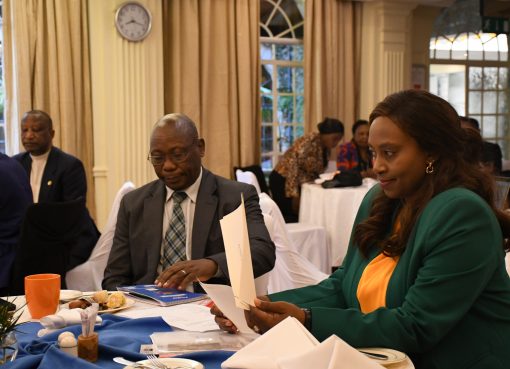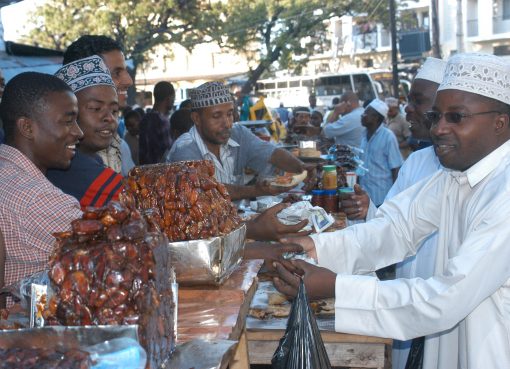Nakuru County has initiated a campaign to debunk myths and misconceptions about vaccination against the Human Papilloma Virus (HPV) which the World Health Organisation blames for 99 per cent of cervical cancer cases.
County Executive Committee Member Dr Zachary Gichuki Kariuki said contrary to assertions by a section of religious leaders, the World Health Organization had certified the vaccine as safe.
The devolved unit is targeting to have 43,000 persons inoculated when the National government rolls out a nationwide campaign to vaccinate young girls aged 10 against the virus.
The vaccine will be given free of charge at about 9,000 public, private and faith-based health facilities countrywide.
According to the World Health Organization, 99 percent cervical cancer cases globally are linked to genital infection with HPV. The Virus is also listed as most common viral infection of the reproductive tract.
Dr Kariuki said though cervical cancer was now the top killer of women in the country, the society had not understood the link between HPV and the disease.
“There is a lot of ignorance out there about HPV and how it can be prevented. Unfortunately misconceptions about intervention strategies against cancer are being fueled by influential members of the clergy. The vaccine helps prevent over 95 per cent of infections from HPV types 16 and 18 hence very effective in the long term in bringing down cervical cancer cases” noted Dr Gichuki.
Nakuru County swung into action after religious leaders including the Kenya Catholic Doctors Associations (KCDA), voiced concerns that the vaccine is harmful to the sexually-inactive population.
KCDA argues that abstinence is the only proven safe and effective means of controlling Human Papilloma Virus (HPV).
In achieving the objective, the devolved unit is partnering with Kenya AIDS NGOs Consortium, KANCO, a regional membership network of organizations dealing with HIV & AIDS and TB in Kenya.
The vaccine is said to be most effective when administered between the ages of nine and 14.
In Kenya, however, the only girls of 10 years will be targeted. This is because there is a global shortage of the HPV vaccine since many countries are rolling it out.
The devolved unit is working with religious leaders, community based organizations, elders and media practitioners in disseminating information over the link of HPV with cancer, the safety and effectiveness of the vaccine.
“We highly respect our religious leaders but matters of immunization are better left to medical experts. All Kenyans have to reflect and secure the health and wellbeing of our future generations,” said the CEC.
Nakuru County Chief officer for Medical Services Dr Solomon Sirma said mapping of schools where the vaccine will be administered has been completed. He said that school heads and managers had been tasked to work with health officials to ensure that the exercise is a success.
“HPV is called a silent infection because there are no symptoms. There are over 100 varieties of HPV, more than 40 of which are passed through sexual contact.
The only way for a woman to know she is infected with the virus is through Pap test Some types of HPV cause genital warts, which do not lead to cancer, while others potentially cause cancers.
There is no documented HPV vaccine related death or medical complications. The risks of developing cancer from HPV outweigh the side effects of the vaccine. We must act to reduce the cancer burden in the country. Nothing will stand between us in the quest,” stated Dr Sirma.
Though the vaccination will only target women, Dr Sirma revealed that men are three times more likely to have HPV than women. Unfortunately, there is not yet a screening test for men.
“Usually HPV does not have symptoms in infected men and may go away on its own. However certain medical findings have linked the virus to penile, anal and pharyngeal cancer in men.
The Centers for Disease Control and Prevention recommends that all boys and girls be vaccinated at age 11 or 12, before any likely exposure to sexually transmitted strains of HPV. But the vaccine is approved for girls, boys, women, and men ages 9 to 45.
The World Health Organization (WHO) recommends vaccination of all girls and screening, at least once every year, for older women to reduce cancer risk, and the vaccine is most effective when administered between the ages of nine and 14.
Data by the International Agency for Research on Cancer show cervical cancer is the second most common type of cancer in Kenya.
Statistics from the Ministry of Health show that 7 women succumb to cancer per day in Kenya, translating to 3,000 per year.
By Anne Mwale



